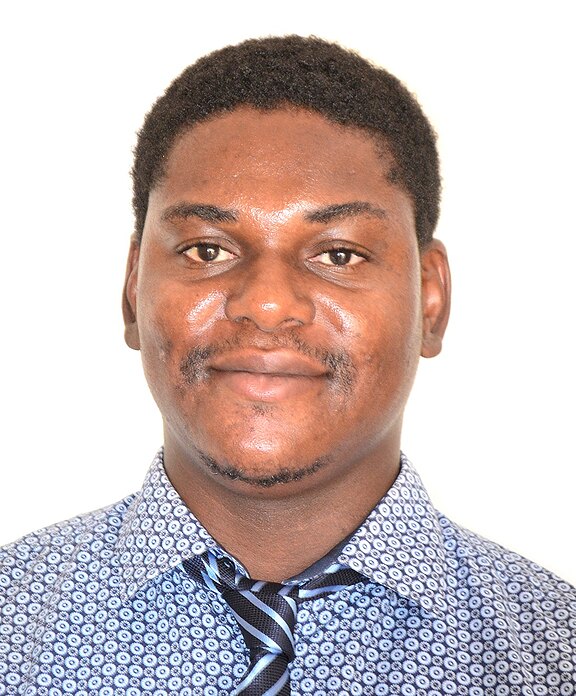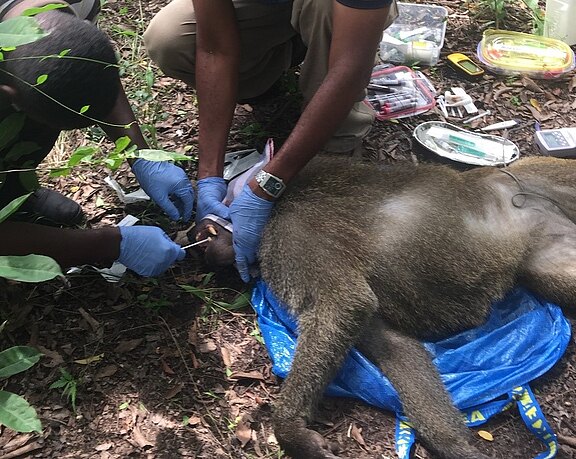My name is Eugene Adade. I am a 32-year-old Ghanaian living in Ghana. I had my tertiary education at the Kwame Nkrumah University of Science and Technology (KNUST), College of Health Science, School of Veterinary Medicine from September, 2010 to June, 2016. I began work as a research assistant on September, 2018 on the TREPs project at the Kumasi Center for Collaborative Research in Tropical Medicine (KCCR) in September, 2018. The TREPs project assessed the potential of non-human primates (monkeys) as a reservoir for human yaws disease. The project also assessed the antimicrobial resistance profile of the bacteria from the oral cavity and the gut of monkeys in Ghana. There was one publication on the first aspect of the project in the Veterinary Medicine and Science Journal titled “No evidence for yaws infection in a small‐scale cross‐sectional serosurvey in Ghanaian monkeys.” This study was the first published information on the infection status of Treponema pallidumsubspecies pertenue (the causative organism for yaws in humans) in Ghana monkeys. In August, 2019, I enrolled as an MPhil. Microbiology student at the department of Theoretical and Applied Biology, College of Science, KNUST. My MPhil thesis was titled “Characterization of Oral and Gastrointestinal bacteria and their Antimicrobial Susceptibility Profile in Non-human Primate Species from Selected Areas in Ghana.” In this study, it was realized that Ghana monkeys that live in close contact with humans harboured bacteria that had the potential of causing disease and were resistant to common antibiotics used in humans and livestock. A second manuscript for this aspect of the work on the TREPs project has been submitted to the Veterinary Medicine and Science Journal and is currently under review. I was also part of the SORMAS-WOPPA project in January, 2021, which was a collaboration between KCCR and Institute of International Animal Health/One Health - Friedrich Loeffler Institute (FLI). The SORMAS-WOPPA project was about establishing a water-based outbreak prediction system in peri-urban Africa. We provided baseline data on the depth of microbial diversity and potential pathogens involved in disease outbreaks in peri-urban Africa with information sourced from peri-urban water sources. From 16th October to 15th December 2021, I was a student trainee at the Institute of International Animal Health/One Health – FLI. In November, 2022, I earned my MPhil. Microbiology qualification from KNUST having fulfilled all the requirements of the university. I am grateful to KCCR and FLI for my training as a young researcher. I am also grateful to Förderverein des Friedrich-Loeffler-Institutes for the wonderful recognition of my work.



